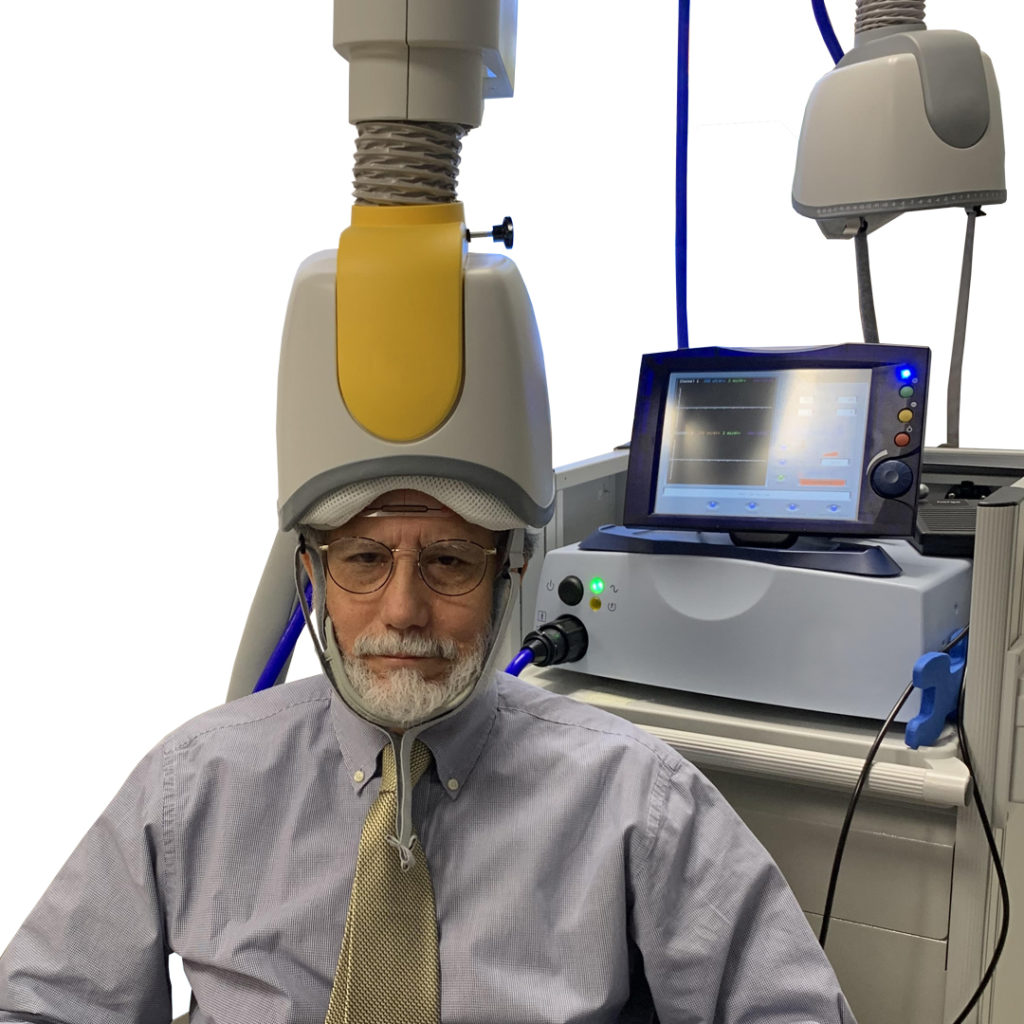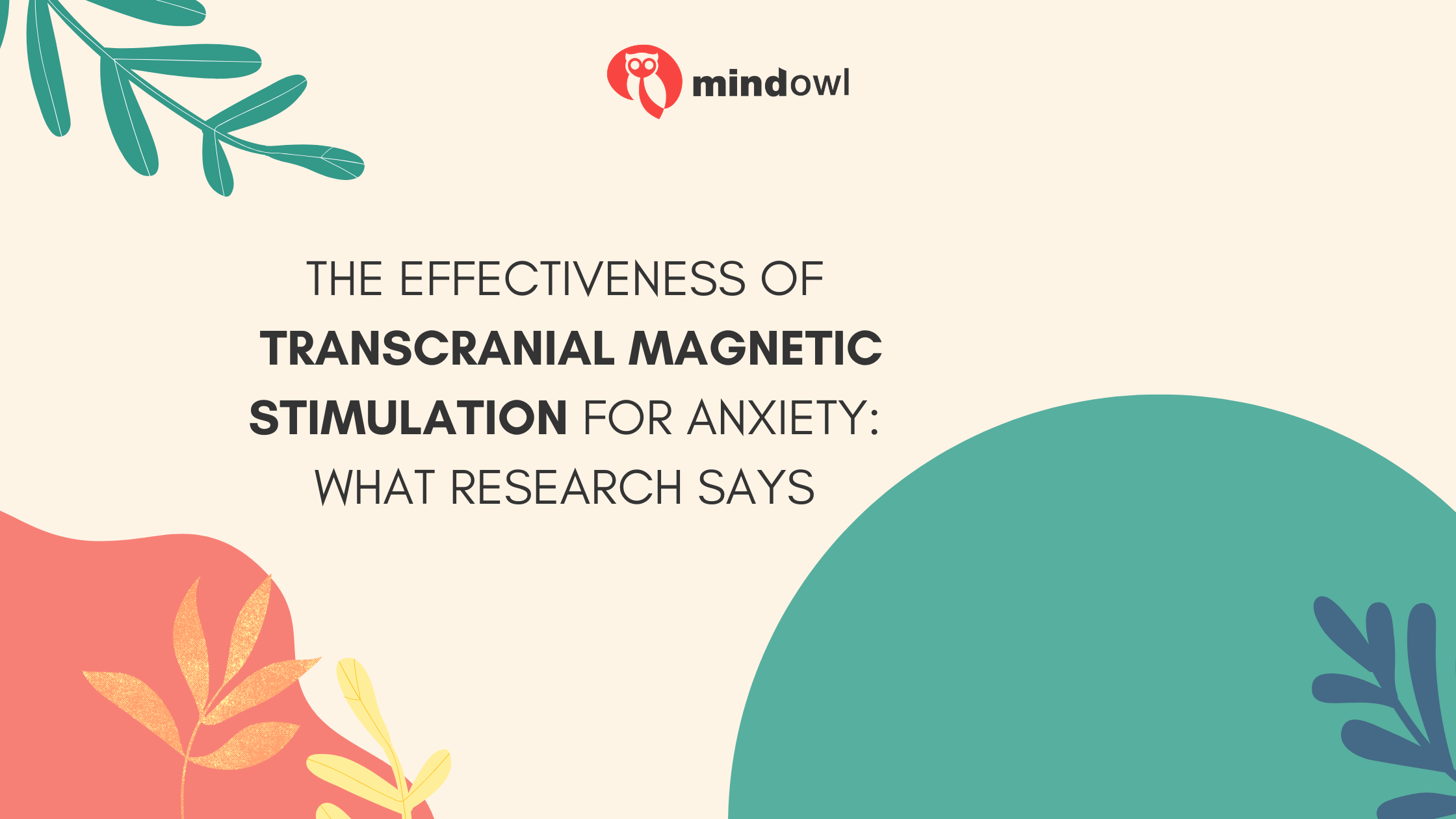Anxiety disorders are among the most common mental health conditions worldwide, affecting millions of people and impacting their daily lives. While traditional treatments such as medication and therapy are effective for many, some individuals continue to struggle with persistent anxiety. As a result, researchers and clinicians are increasingly exploring alternative treatments, including Transcranial Magnetic Stimulation (TMS). In this article, we delve into the effectiveness of transcranial magnetic stimulation for anxiety, reviewing what research says about its success rate, its application at home, and whether it works for anxiety.
Understanding Transcranial Magnetic Stimulation
Transcranial Magnetic Stimulation (TMS) is a non-invasive technique that uses magnetic fields to stimulate nerve cells in the brain. The process involves placing an electromagnetic coil on the scalp, which generates magnetic pulses to target specific areas of the brain associated with mood regulation and cognitive function. Originally used to treat depression, TMS has garnered attention for its potential benefits in treating anxiety disorders.

How TMS Works for Anxiety
TMS therapy operates on the principle that altering brain activity can influence mood and anxiety levels. Anxiety disorders are often linked to imbalances in brain function, particularly in regions like the prefrontal cortex, which is involved in emotional regulation and cognitive processes. By applying magnetic pulses to these targeted areas, TMS aims to restore normal brain activity and alleviate anxiety symptoms.
1. The Mechanism of Action
The magnetic pulses from TMS stimulate neurons in the targeted brain regions, which can help normalize brain function and improve connectivity between different areas of the brain. This stimulation may help reduce symptoms of anxiety by enhancing the brain’s ability to regulate emotional responses and cope with stress.
2. Research Findings
A growing body of research supports the use of TMS for anxiety. Studies have shown that TMS can lead to significant reductions in anxiety symptoms, with some research indicating that it may be particularly effective for individuals who have not responded well to traditional treatments. Clinical trials have demonstrated that TMS can help improve anxiety symptoms by altering brain activity in a way that supports better emotional regulation.
Does Transcranial Magnetic Stimulation Work for Anxiety?
The question of whether transcranial magnetic stimulation works for anxiety is supported by various studies, though results can vary. Clinical trials and meta-analyses have provided evidence of its effectiveness, though the degree of benefit can depend on several factors:
- Individual Response: Responses to TMS can vary widely. Some individuals may experience significant relief from anxiety symptoms, while others may notice only mild improvements. The effectiveness of TMS therapy can be influenced by the severity of anxiety, the specific brain regions targeted, and individual neurobiological factors.
- Treatment Duration and Frequency: Research suggests that the success of TMS therapy for anxiety can also depend on the duration and frequency of treatments. Typically, TMS involves a series of sessions over several weeks. Studies have found that consistent treatment is crucial for achieving optimal results.
- Combination with Other Therapies: TMS therapy is sometimes used in conjunction with other treatments, such as medication or cognitive-behavioral therapy (CBT). Combining TMS with these approaches may enhance overall effectiveness and provide more comprehensive symptom relief.
The Success Rate of TMS Therapy
One key consideration for those exploring transcranial magnetic stimulation for anxiety is the transcranial magnetic stimulation success rate. While individual experiences can vary, research provides a general picture of how effective TMS can be:
- Clinical Studies: Clinical studies have reported that a significant number of patients experience a reduction in anxiety symptoms following TMS therapy. Success rates can vary, but many studies indicate that a substantial proportion of patients see improvement in their anxiety levels.
- Long-Term Outcomes: The long-term success rate of TMS therapy is an important consideration. Research suggests that the benefits of TMS can be sustained over time, particularly when combined with ongoing therapy or medication.
TMS Therapy at Home
With the rise of remote health solutions, you might wonder about the feasibility of transcranial magnetic stimulation at home. Currently, TMS therapy is typically administered in a clinical setting due to the need for precise equipment and monitoring. However, there are ongoing discussions and research about the potential for home-based TMS devices.
1. The Current State of Home-Based TMS
As of now, most TMS treatments are conducted in specialized clinics where professionals can ensure proper administration and safety. The technology required for TMS is complex, and home-based versions are still in development stages or limited to specific research studies.
2. The Future of Home-Based TMS
The future of home-based TMS holds promise, with advancements in technology potentially making it more accessible. Researchers are exploring ways to develop safe and effective home-use devices, which could offer greater convenience and flexibility for patients. However, it’s essential for individuals to consult with healthcare providers before using any home-based TMS devices to ensure safety and effectiveness.
Considerations for Choosing TMS Therapy
If you’re considering TMS therapy for anxiety, there are several factors to consider:
- Consult with a Healthcare Professional: It’s crucial to discuss TMS therapy with a healthcare provider who can assess whether it’s an appropriate option for your specific situation. They can provide guidance on treatment protocols and help set realistic expectations.
- Evaluate Treatment Options: Consider TMS therapy as part of a broader treatment plan that may include medication, therapy, or lifestyle changes. Integrating multiple approaches can provide a more comprehensive strategy for managing anxiety.
- Monitor Progress: Regularly monitor your progress and communicate with your healthcare provider about any changes in symptoms or side effects. This ongoing evaluation will help determine the effectiveness of TMS therapy and make any necessary adjustments to the treatment plan.
Conclusion
Transcranial magnetic stimulation for anxiety represents a promising alternative for individuals who have not found relief through traditional treatments. Research indicates that TMS therapy can be effective in reducing anxiety symptoms by modulating brain activity and improving emotional regulation. While the transcranial magnetic stimulation success rate can vary, many individuals experience significant benefits from TMS therapy.
Though transcranial magnetic stimulation at home is not yet widely available, future advancements may make it a more convenient option. For now, consulting with a healthcare professional and considering TMS therapy as part of a comprehensive treatment plan can help you make an informed decision about managing anxiety. As research continues to evolve, staying informed about the latest developments in TMS therapy will be crucial for maximizing its potential benefits.
For those interested in exploring TMS therapy further, reaching out to specialized clinics and discussing your options with a healthcare provider can provide valuable insights and help guide you on your path to improved mental well-being.
MindOwl Founder – My own struggles in life have led me to this path of understanding the human condition. I graduated with a bachelor’s degree in philosophy before completing a master’s degree in psychology at Regent’s University London. I then completed a postgraduate diploma in philosophical counselling before being trained in ACT (Acceptance and commitment therapy).
I’ve spent the last eight years studying the encounter of meditative practices with modern psychology.

